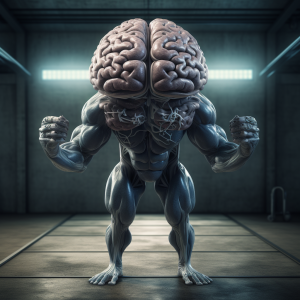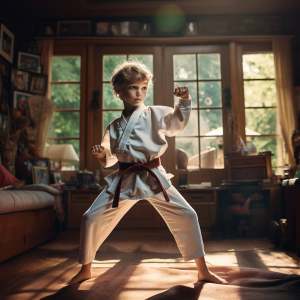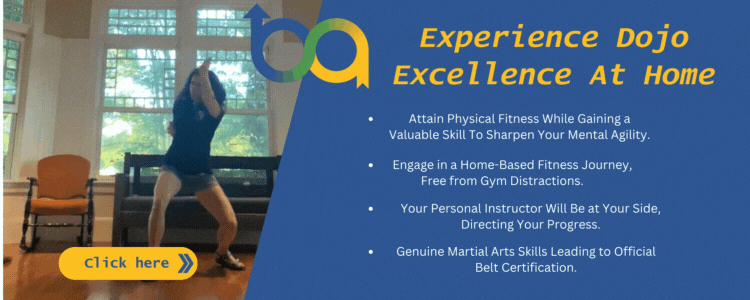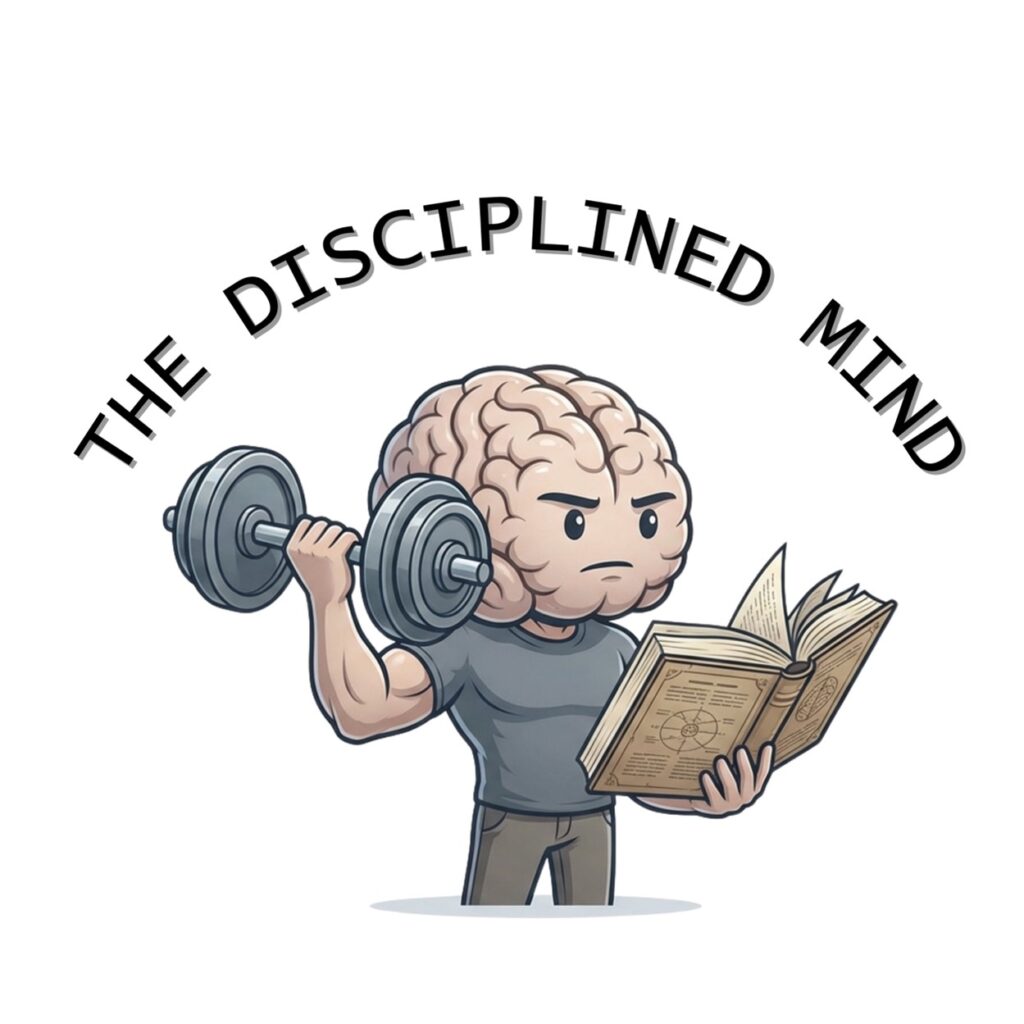 In today’s increasingly competitive academic landscape, many students are looking for ways to enhance their cognitive abilities so they can excel in their studies and still maintain a healthy school-life balance.
In today’s increasingly competitive academic landscape, many students are looking for ways to enhance their cognitive abilities so they can excel in their studies and still maintain a healthy school-life balance.
While traditional methods like tutoring can help elevate one’s academic performance, there’s a powerful yet often overlooked tool that can significantly boost all aspects of life from the physical to the mental and emotional: coordinative fitness through martial arts.
More than just a physical discipline, martial arts offer a comprehensive approach that integrates mind and body, improving not only physical fitness but also mental sharpness.
Because martial arts are the original coordinative fitness, they play a crucial role in boosting academic excellence. It’s important to define coordinative fitness and why it works and reveal how the physical demands of martial arts can lead to cognitive enhancements that translate into better academic performance. There are also multiple sources of research that highlight the link between physical activity and improved brain function.
In addition, we want to explore the science behind this connection further, showing how martial arts can specifically sharpen focus, improve memory, and enhance problem-solving skills. In part two of this blog, I want to dive into the process of integration, show you how easily our platform works within any environment, and demonstrate how to incorporate martial arts into students’ routines to maximize their academic potential, both in school and at home.
Whether you’re a student, parent, educator, or simply someone interested in the intersection of physical and cognitive development, this information will offer valuable insights into how martial arts can be a game-changer in the pursuit of academic excellence.
Understanding Coordinative Fitness
Coordinative fitness is much more than the widely accepted definition of utilizing senses and physical movements together to achieve the desired result.
In fact, coordinative fitness integrates all pieces of the human body in synergy to accomplish smoother movements, better balance, and stronger more fluid control. By training our senses to collaborate with our body while relying on our mind for support, we can enhance both our physical fitness and our mental and emotional well-being.
Our online martial arts program takes the concept of coordinative fitness even one step further than this: we have integrated bilateral coordinative fitness into a traditional martial arts curriculum and broken it down into pieces so any student of any skill level can eventually master each technique with practice and dedication.
So, what exactly is bilateral coordinative fitness and why is it so much better than simply training in traditional martial arts?
 Bilateral Coordinative Fitness (BCF) is a structured training method that enhances coordination, flexibility, and endurance by dividing the body into four quadrants (upper left, upper right, lower left, lower right). It involves isolated and combined movements across these quadrants, performed in varying sequences and intensities. This progressive approach develops mastery over one’s body, improving reflexes, breathing, and both mental and physical resilience.
Bilateral Coordinative Fitness (BCF) is a structured training method that enhances coordination, flexibility, and endurance by dividing the body into four quadrants (upper left, upper right, lower left, lower right). It involves isolated and combined movements across these quadrants, performed in varying sequences and intensities. This progressive approach develops mastery over one’s body, improving reflexes, breathing, and both mental and physical resilience.
BCF is a powerful sensory integrative therapy that enhances neuroplasticity, particularly beneficial for autistic and neurodivergent individuals. By requiring focused attention on coordinating the right and left sides of the body and synchronizing upper and lower hemispheres, it sharpens both proprioceptive and interoceptive awareness.
Our brand of bilateral coordinative fitness elevates this concept by placing a unique emphasis on cultivating awareness. We focus on how internal states, such as breathing and heart rate, directly impact movement and vice versa, enhancing the therapeutic benefits. This intense focus on awareness, we believe, transforms the effectiveness of therapy, making our approach especially valuable.
This heightened awareness not only enhances therapeutic outcomes but also plays a crucial role in boosting cognitive function. By integrating these principles into our approach, we create a foundation that not only supports physical and emotional well-being but also has a significant impact on academic performance and cognitive development.
Introducing the Science Behind Martial Arts and Academic Performance
“The results of cross-sectional and epidemiological studies showed that physical exercise enhances cognitive functions in young and older adults, improving memory abilities, efficiency of attentional processes and executive-control processes. Furthermore, structural changes following physical exercise have been related to academic achievement in comparison to sedentary individuals.” (Frontiers in Psychology, 2018)
As the study above suggests, physical activity is a positive factor in preserving and elevating cognitive function. At a simpler level, as aerobic activity increases blood flow and heart rate, the body receives the “food” it requires to stimulate the brain. However, diving deeper, physical activity has shown to promote definitive changes within the brain: “exercise has demonstrated an extraordinary aptitude to influence molecular pathways involved with synaptic function underlying learning and memory” (Gomez-Pinilla & Hillman, 2014).
This has extraordinary implications within the educational realm, as it proposes a direct connection between physical activity and increased academic achievement/learning, retention, and memory. It establishes the value of consistent exercise for both the physical body and for the mind, especially movements like those found within martial arts.
Research has found that martial arts training specifically can lead to neural plasticity, which is the brain’s ability to adapt and change in response to experience (this is crucial for cognitive development and function). Studies have found that martial arts training can increase the volume and density of brain gray matter, which is associated with improved cognitive function (Pujari, 2022). This means that everything from attention to decision-making to overall memory can be positively affected by consistent training in martial arts.
So why are martial arts in a class of their own?
Martial arts, by nature, involve learning several different series of movements that when combined, create techniques. These techniques often involve bilateral coordination, as we mentioned previously. Utilizing multiple hemispheres of your body both in isolated movements and in harmony creates a mastery over oneself, physically and mentally, improving everything from reflexes to balance.
“Sequential learning is the next crucial skill acquired through (martial arts) training that aids with neurocognition. The location of motor sequencing in the brain enhances working memory, serial reaction time, and blood flow associated to learning. Regular practice, particularly with katas (techniques) that employ a sequential training strategy, may aid in the activation of the brain, the networking of synapses, and the release of neurotransmitters” (Pujari, 2022).
In addition, the inherent repetitiveness of martial arts provides a firm foundation to build working memory, frame associative learning, and create mindfulness/awareness. All these factors contribute to the elevation of martial arts above standard sports when we’re discussing the implications of elevating cognitive functions.
Finally, it’s important to note that martial arts are a comprehensive, full-body movement art: while many sports focus on one hemisphere of the body, martial arts utilize the whole body. This prevents muscular imbalance and damage by routinely and evenly training each side of the body and mind, allowing it to work symmetrically (Pujari, 2022). This is especially important for individuals who struggle with muscular diseases or dysfunction.
 Given these powerful cognitive and physical benefits, the question becomes: how can martial arts be effectively integrated into students’ daily routines, whether at school, within therapy programs (if applicable), or at home?
Given these powerful cognitive and physical benefits, the question becomes: how can martial arts be effectively integrated into students’ daily routines, whether at school, within therapy programs (if applicable), or at home?
Fortunately, modern advancements in technology have made it easier than ever to bring martial arts instruction beyond the traditional dojo setting.
With an innovative online program like ours, students can access high-quality martial arts training from the comfort of their home or even as part of their school/therapy curriculum. This flexibility makes it possible for schools and parents alike to incorporate martial arts into their children’s lives, ensuring that they reap the academic and cognitive rewards without disrupting their schedules.
Stay tuned in PART TWO of our blog to find out how to integrate coordinative fitness into any routine, and we’ll share some tips and tricks while we’re there to get you started!
References
Gomez-Pinilla F, Hillman C. The influence of exercise on cognitive abilities. Compr Physiol. 2013 Jan;3(1):403-28. doi: 10.1002/cphy.c110063. PMID: 23720292; PMCID: PMC3951958.
Healthline. (2019). How to Add Compound Exercises to Your Workout Routine. Retrieved from https://www.healthline.com/health/fitness-exercise/compound-exercises
Mandolesi L, Polverino A, Montuori S, Foti F, Ferraioli G, Sorrentino P, Sorrentino G. Effects of Physical Exercise on Cognitive Functioning and Wellbeing: Biological and Psychological Benefits. Front Psychol. 2018 Apr 27;9:509. doi: 10.3389/fpsyg.2018.00509. PMID: 29755380; PMCID: PMC5934999.
Pujari, V. (2022). Karate and Cognition: The Impact of Martial Arts on Brain Development. Retrieved from https://ejmcm.com/uploads/paper/c04a24d91a17b0bb63b14545c57d4671.pdf






